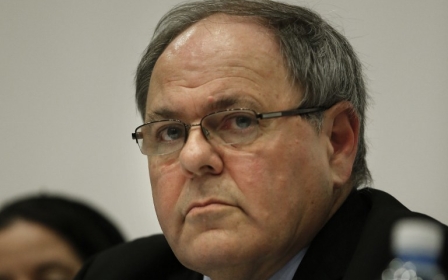'The decision is taken': Brazil to move its embassy to Jerusalem, says Bolsonaro

Brazil's President Jair Bolsonaro has confirmed that the South American country will move its embassy to Jerusalem, following an earlier statement by Israeli Prime Minister Benjamin Netanyahu, who was in Brazil this week to attend the new Brazilian leader's swearing-in.
"The decision is taken," Bolsonaro said late on Thursday in an interview on Brazil's SBT television, as reported by AFP.
"It's only a matter of when it will be implemented," he said.
The comment confirmed an earlier statement by Netanyahu, who said on Sunday that Bolsonaro said it was a matter of "when, not if" the Brazilian embassy would move to Jerusalem.
Brazil is following in the footsteps of the United States, which moved its embassy to Jerusalem from Tel Aviv last year, a move that caused a surge of anger among Palestinians.
Bolsonaro, a far-right former paratrooper intent on forging close ties with the US and Israel, said in early November he intended to go through with the embassy move.
He quickly reversed course, however, saying "it is not yet decided", apparently responding to fears from Brazil's powerful farming businesses that an embassy move could put at risk $1bn in meat exports to Arab markets.
But in his SBT interview, Bolsonaro minimised that risk, saying: "A large part of the Arab world is aligned or aligning itself with the United States. The Palestinian issue is already overloading people in the Arab world for the most part."
He said that "the only weighty voice speaking out against me is Iran".
Some of the "more radical" Arab nations "might adopt some sort of sanction - I hope only economic ones - against us," he added, without specifying which countries he was referring to.
Bolsonaro's plans to move the embassy to Jerusalem would be a shift in Brazilian foreign policy, which has traditionally backed a two-state solution to the Israeli-Palestinian conflict.
The Arab League had told Bolsonaro that moving the embassy would be a setback for relations with Arab countries, according to a letter seen by Reuters in December.
The decision is controversial because Israel claims all of Jerusalem as its capital while Palestinians view East Jerusalem as the capital of their future state.
Most countries agree that Jerusalem's status can only be defined through Israeli-Palestinian peace negotiations.
So far, only the US and Guatemala have broken with that consensus by opening embassies in Jerusalem.
Paraguay backtracked on a decision last year to move its embassy, while Israel and the US have talked with Honduras about its embassy moving to Jerusalem.
New MEE newsletter: Jerusalem Dispatch
Sign up to get the latest insights and analysis on Israel-Palestine, alongside Turkey Unpacked and other MEE newsletters
Middle East Eye delivers independent and unrivalled coverage and analysis of the Middle East, North Africa and beyond. To learn more about republishing this content and the associated fees, please fill out this form. More about MEE can be found here.




